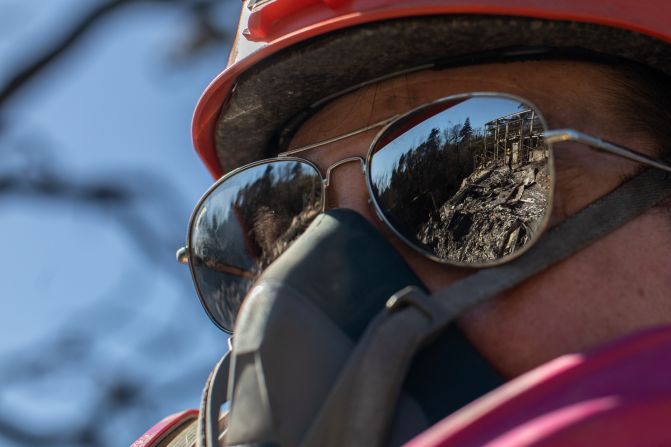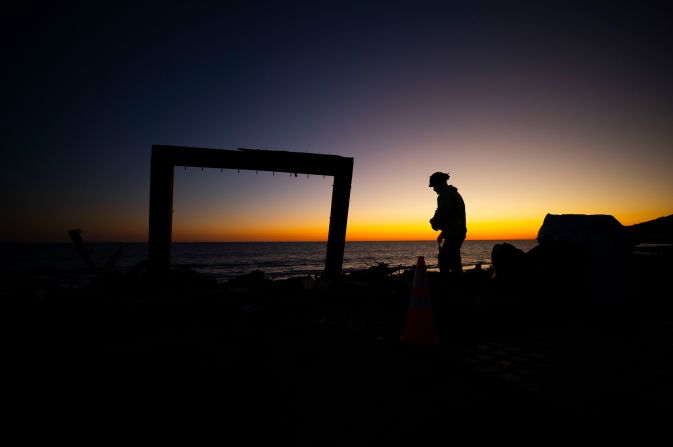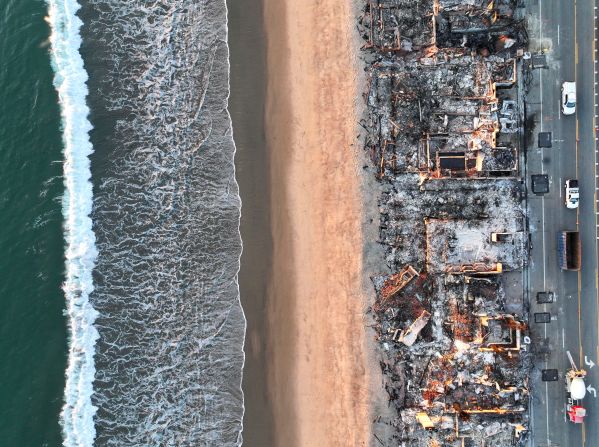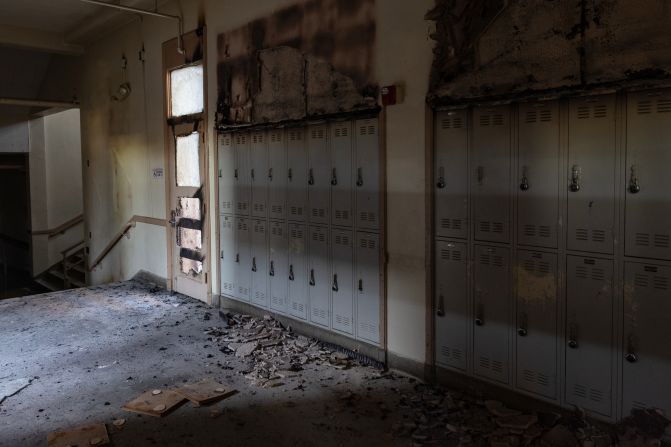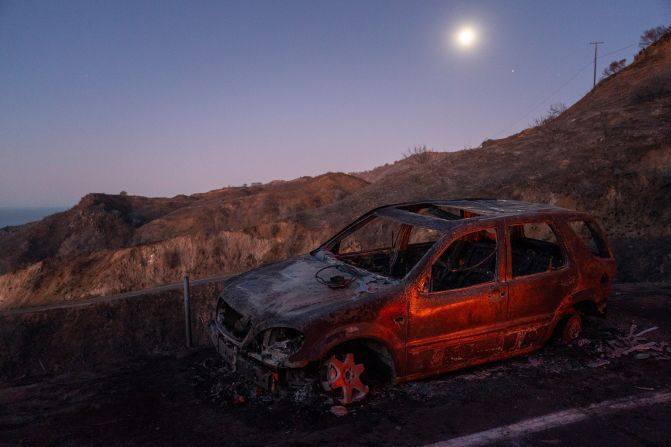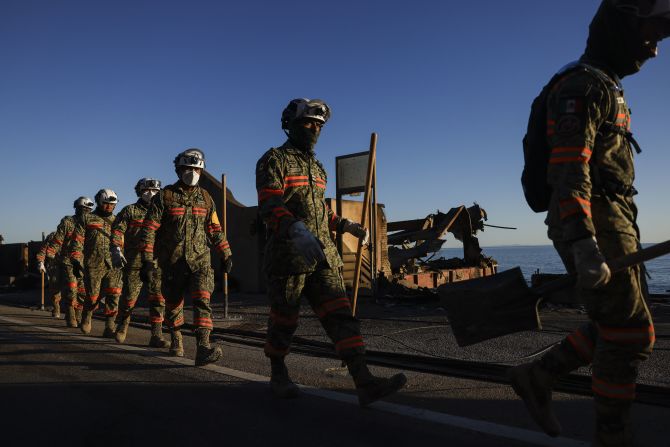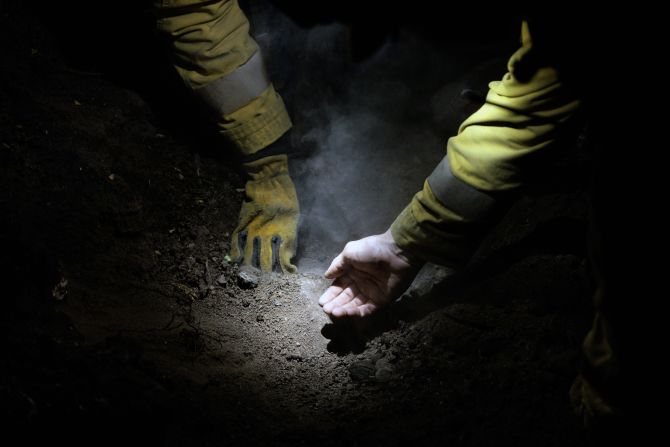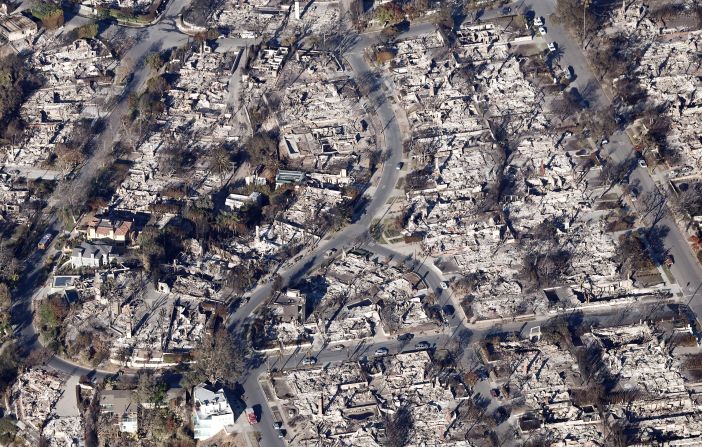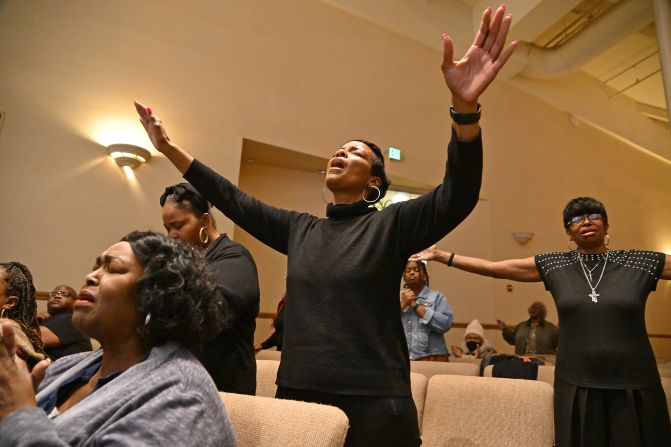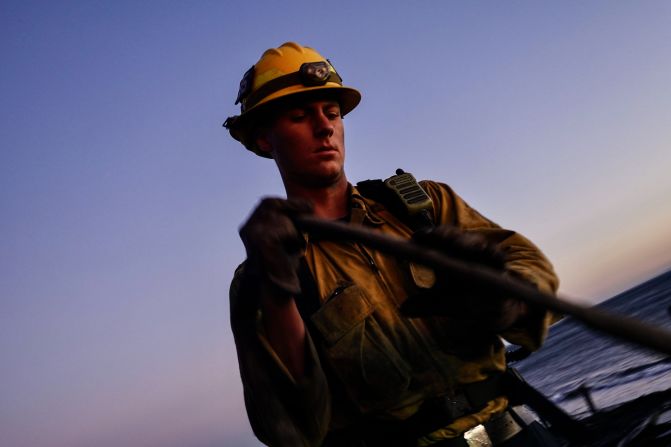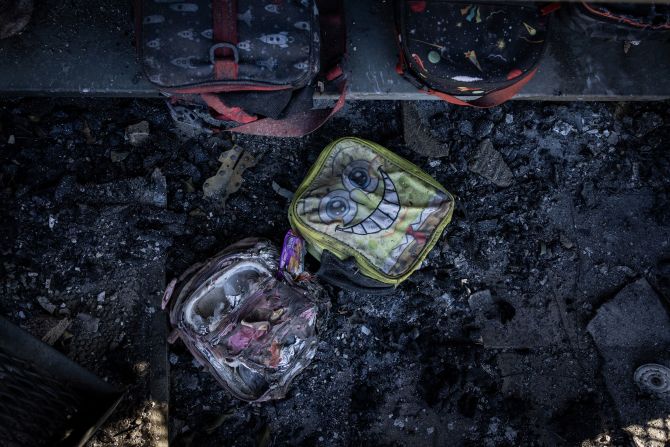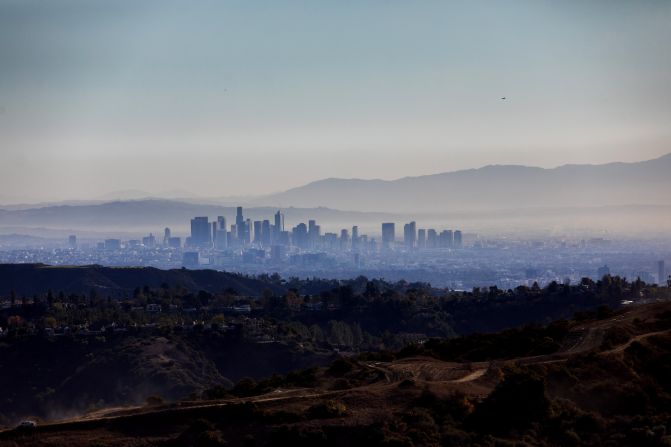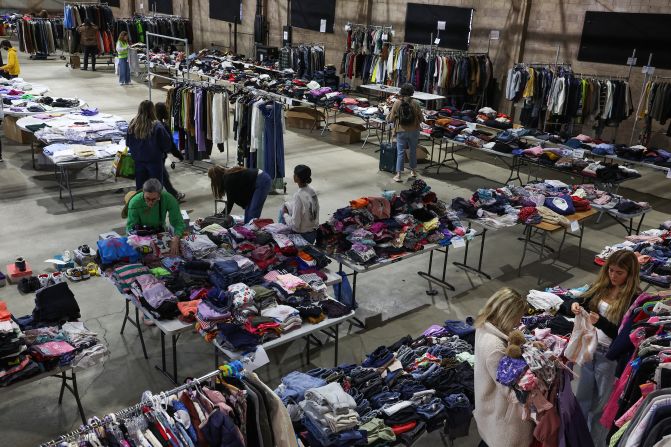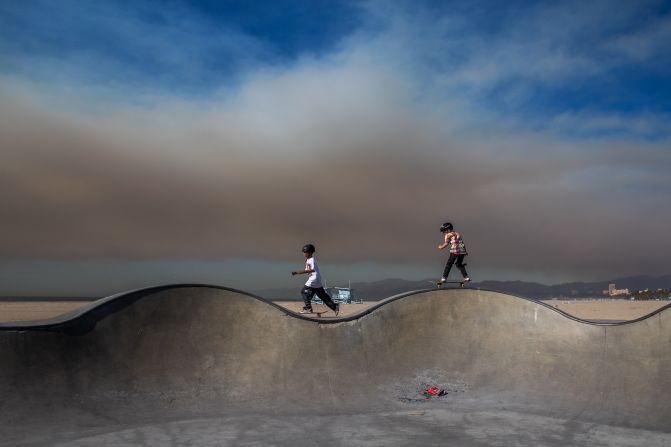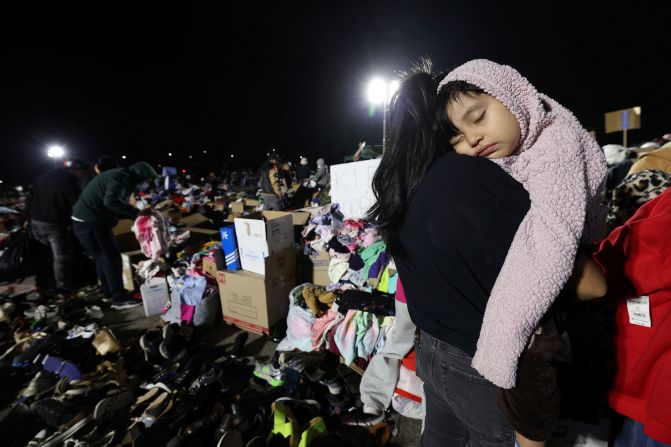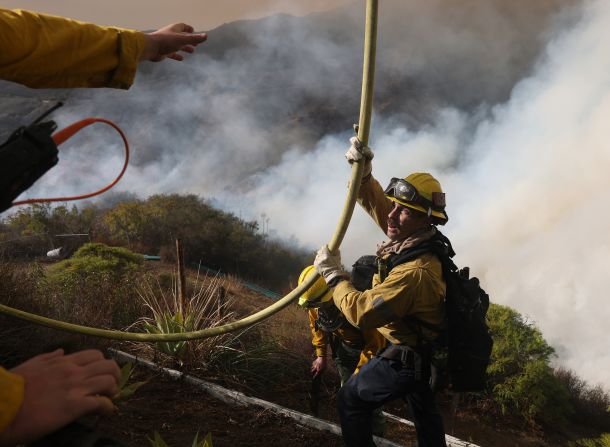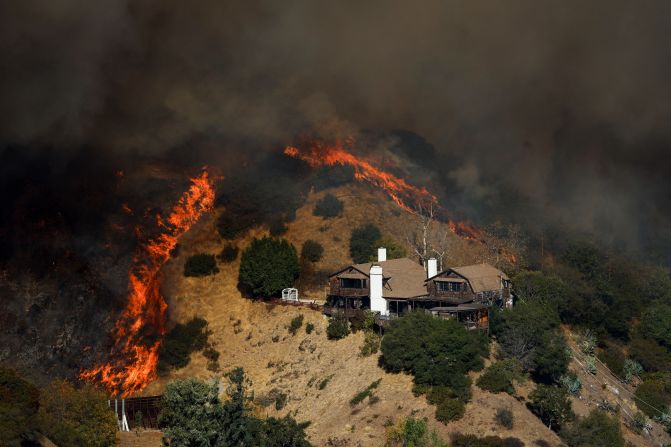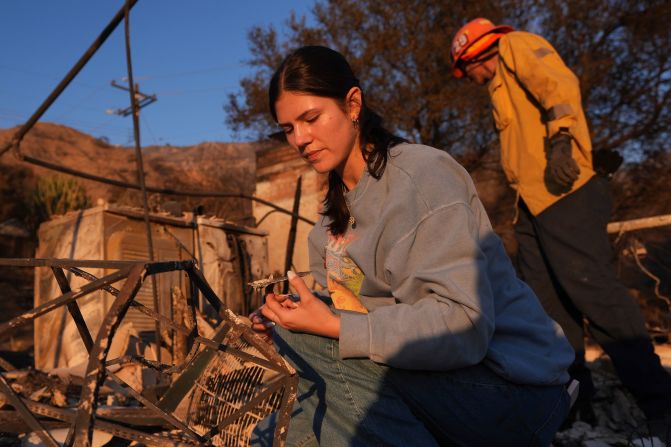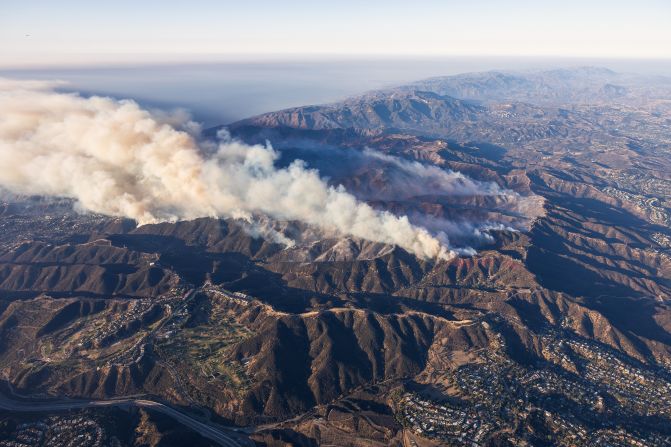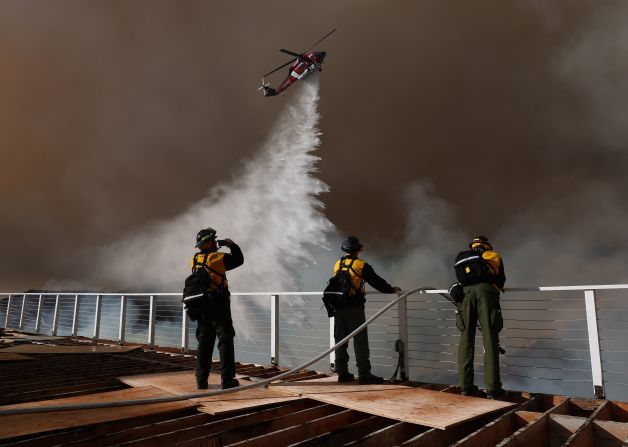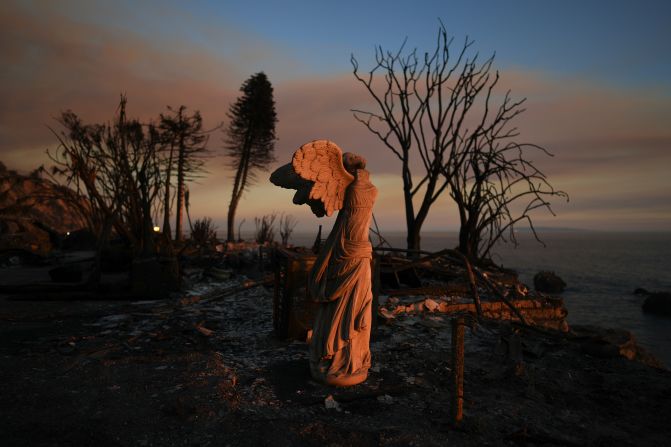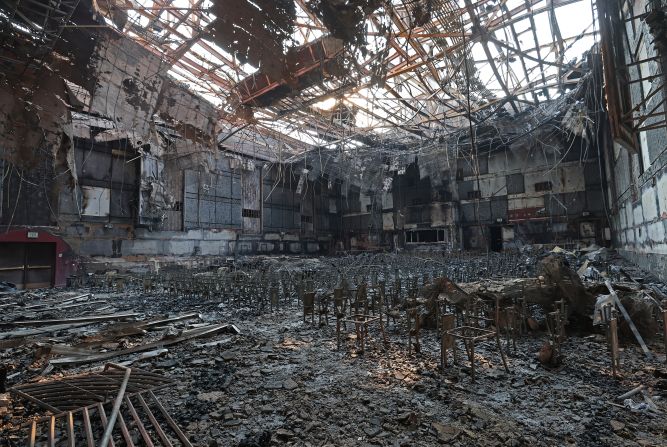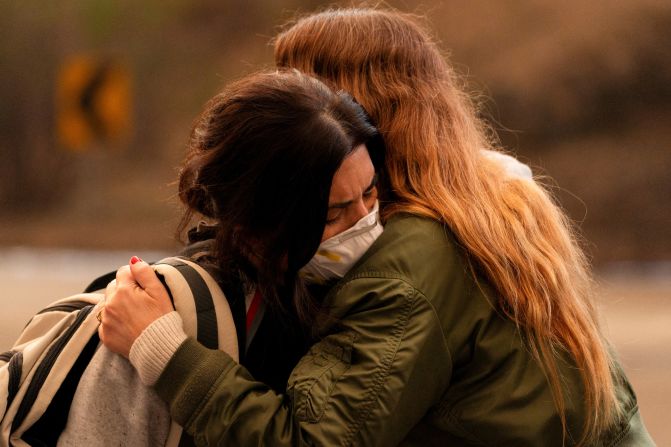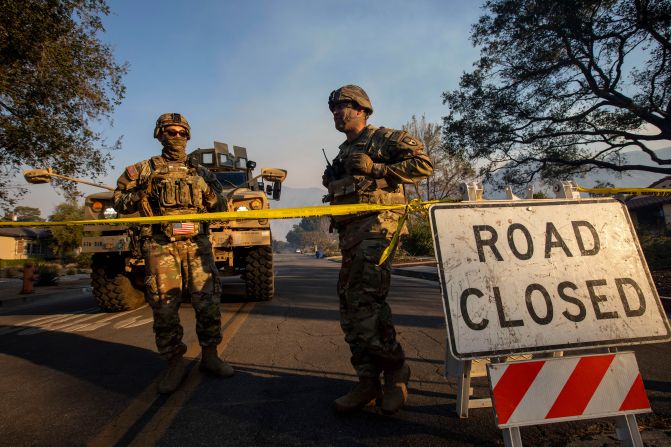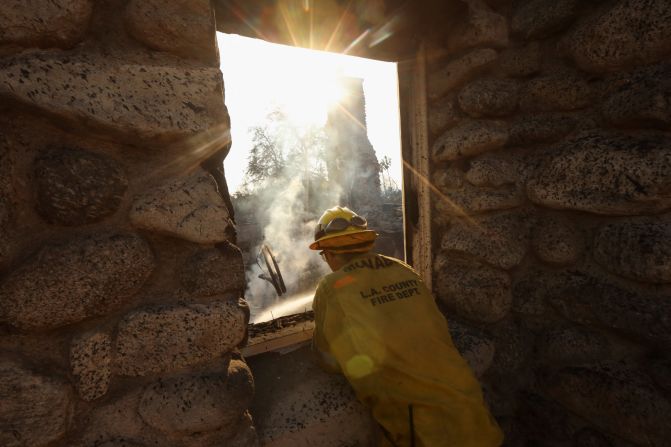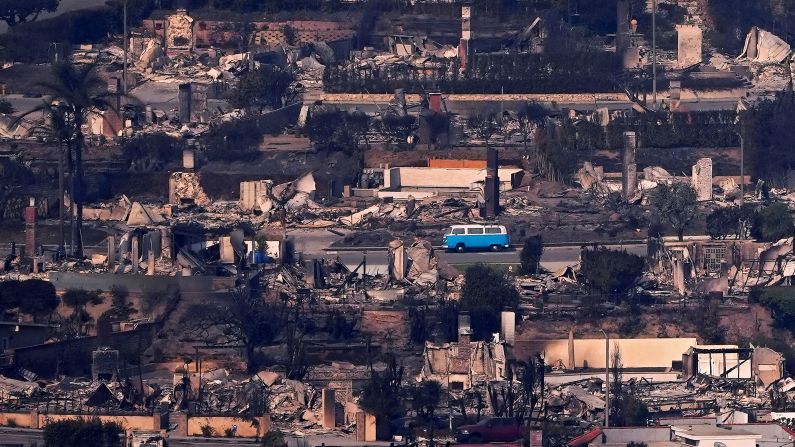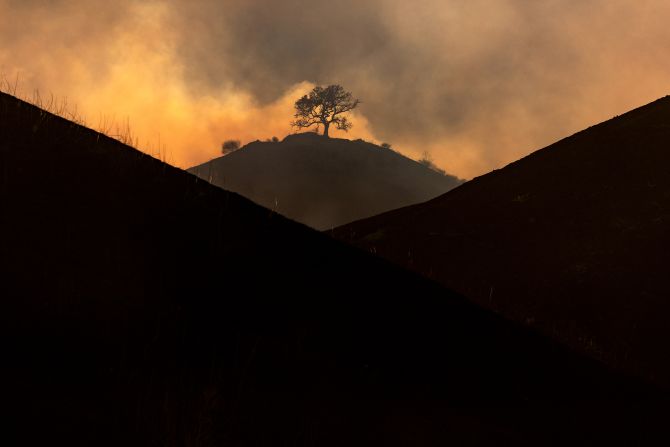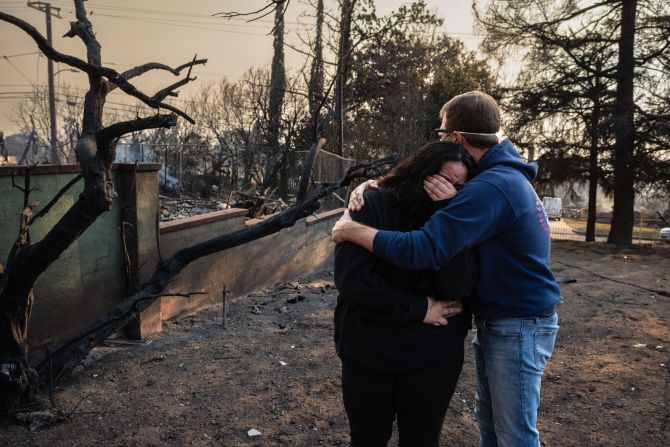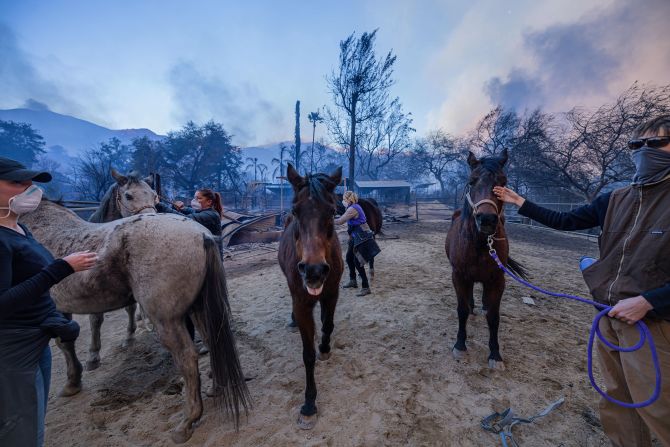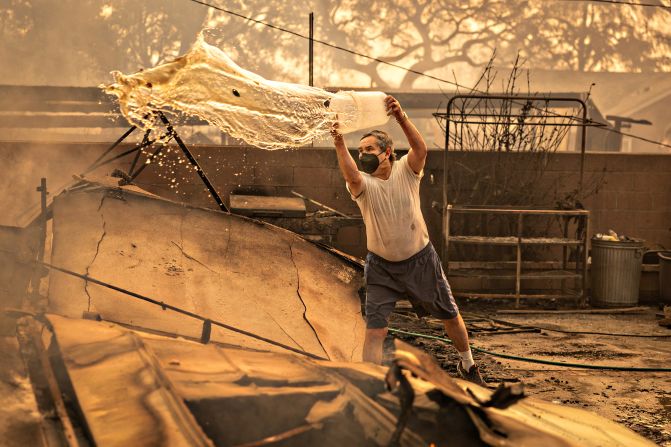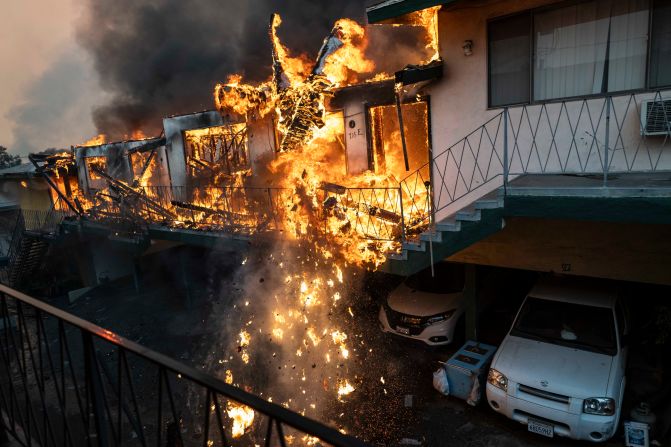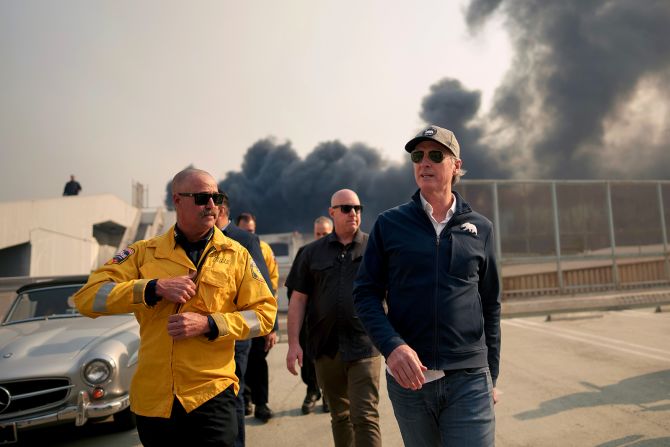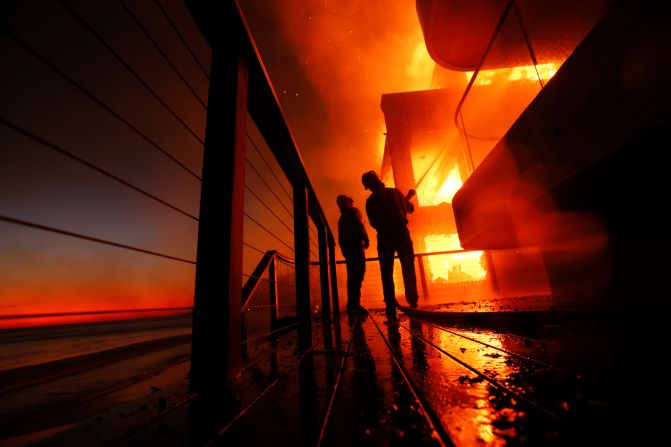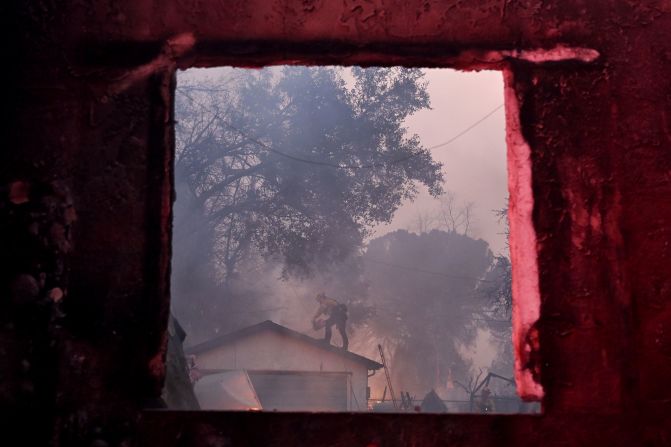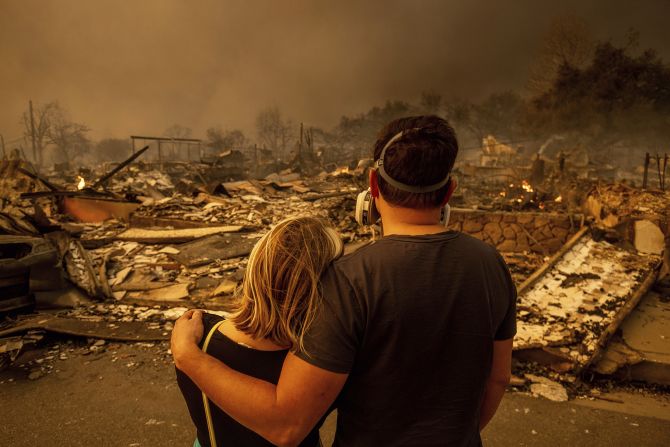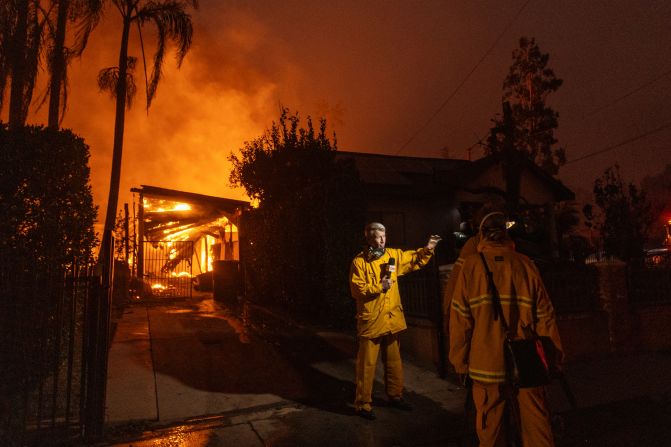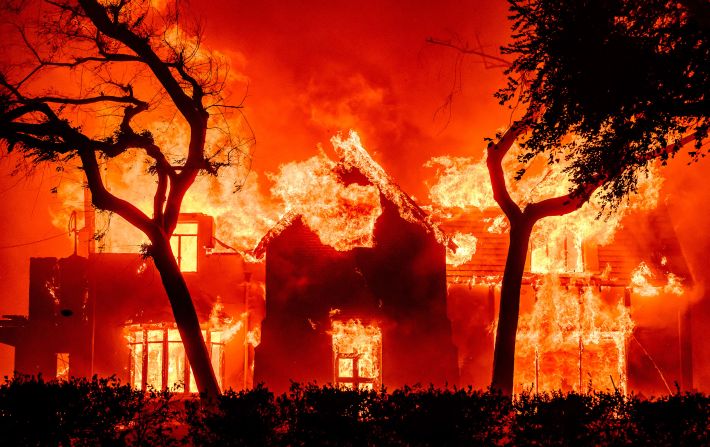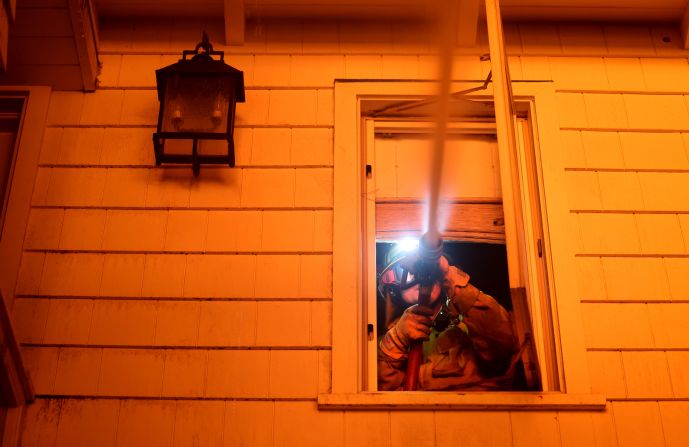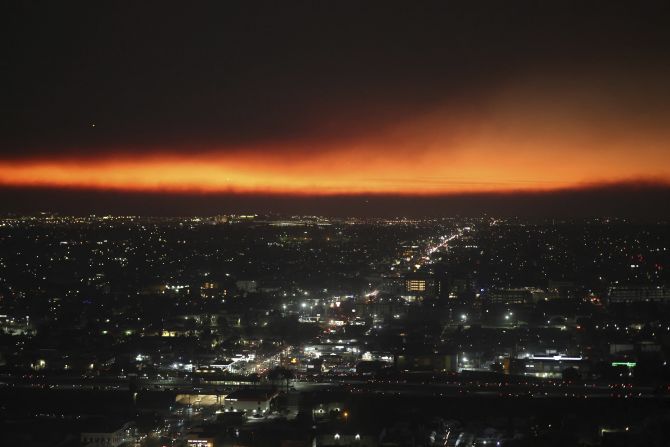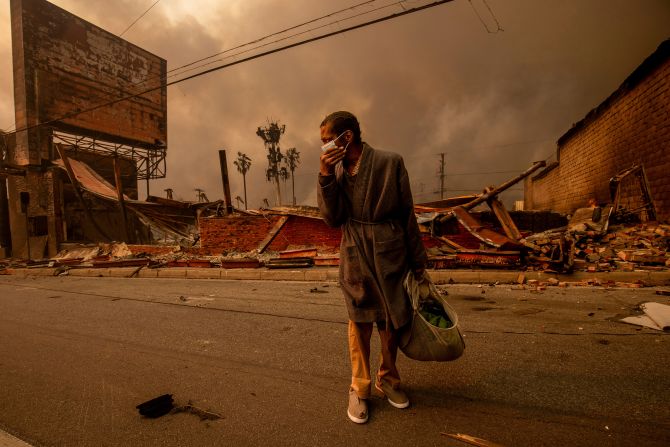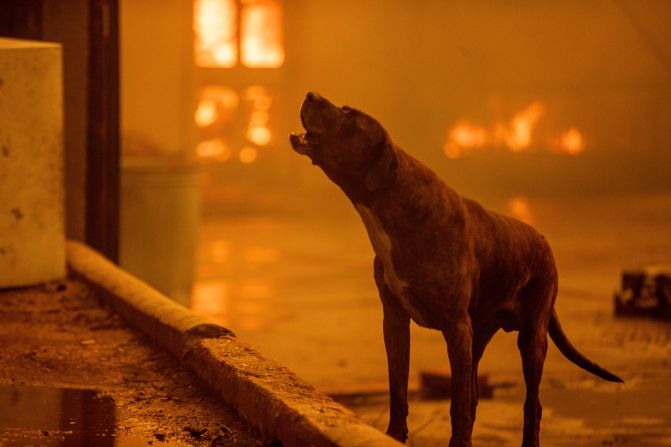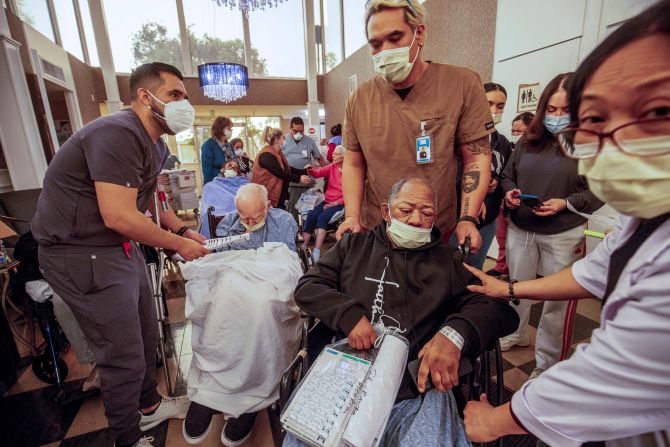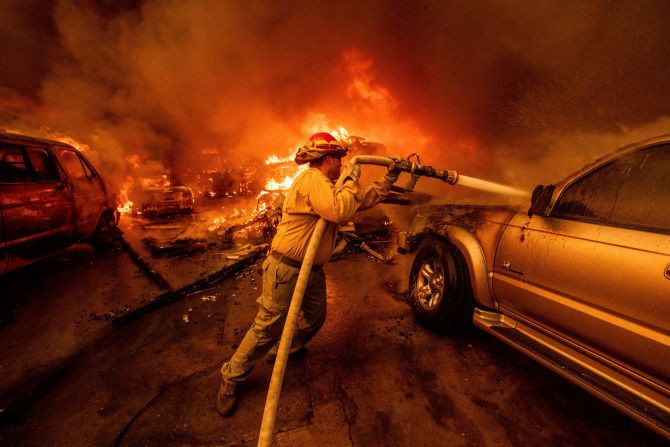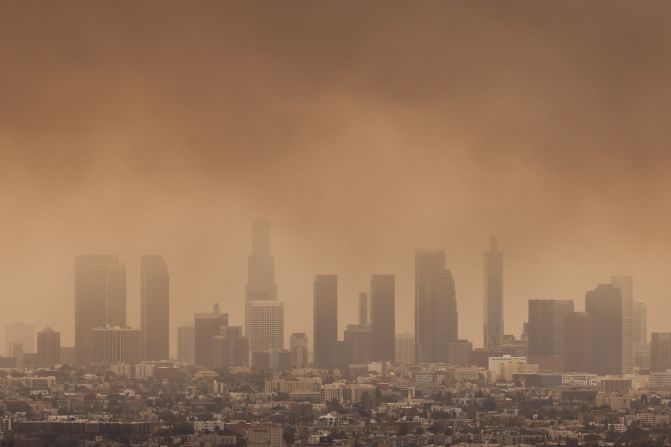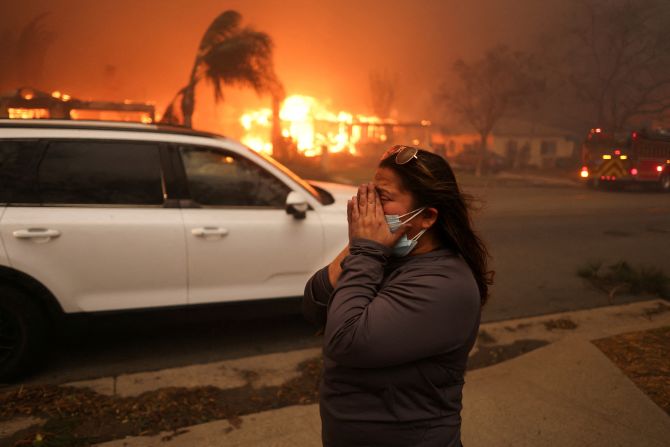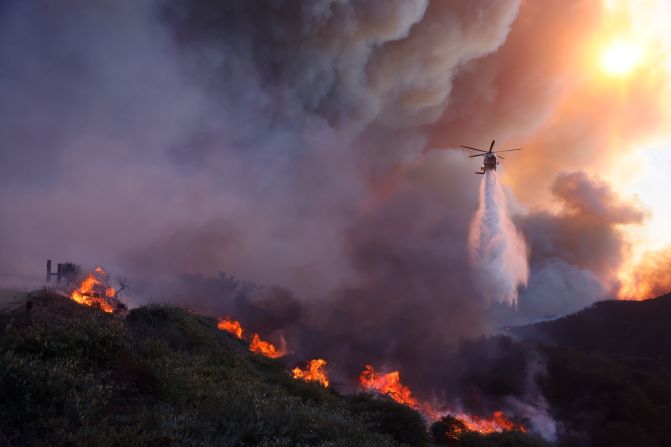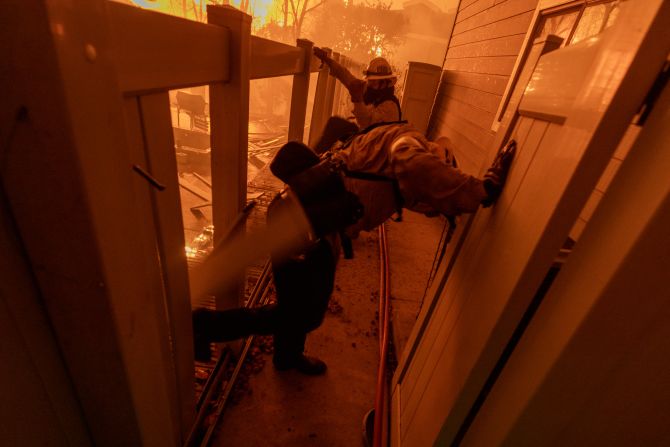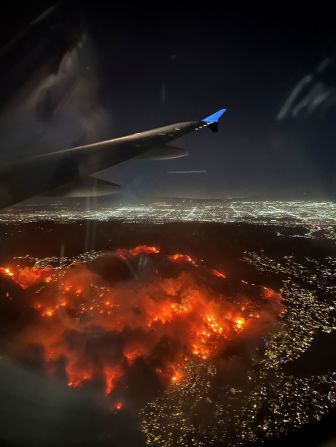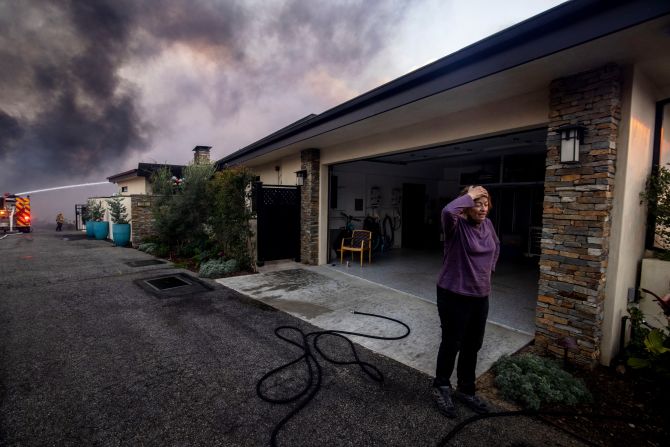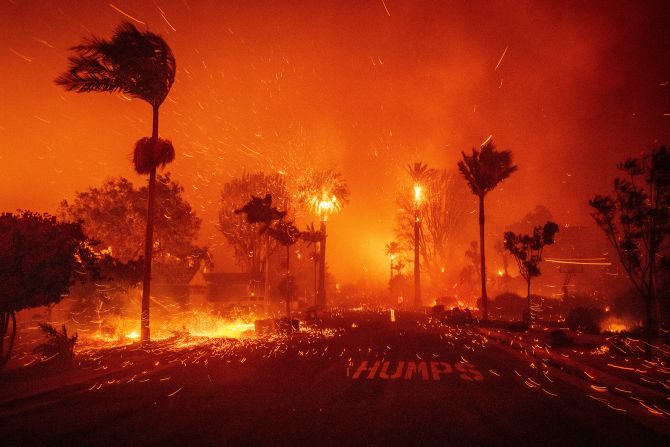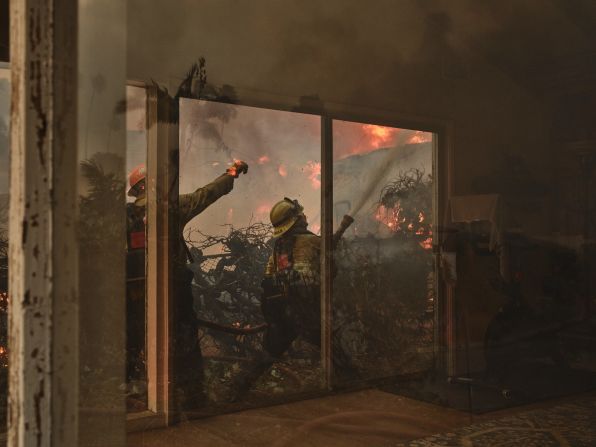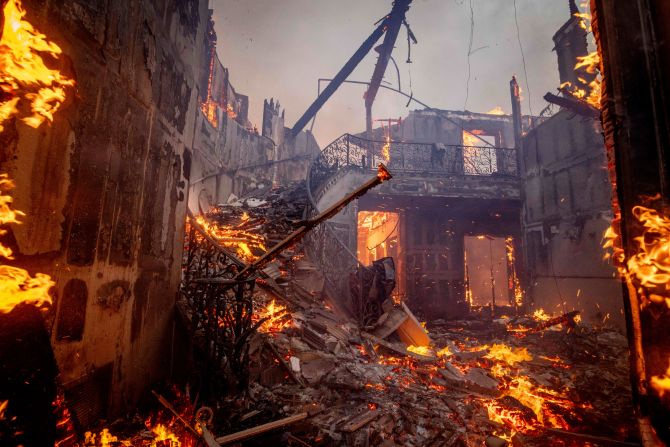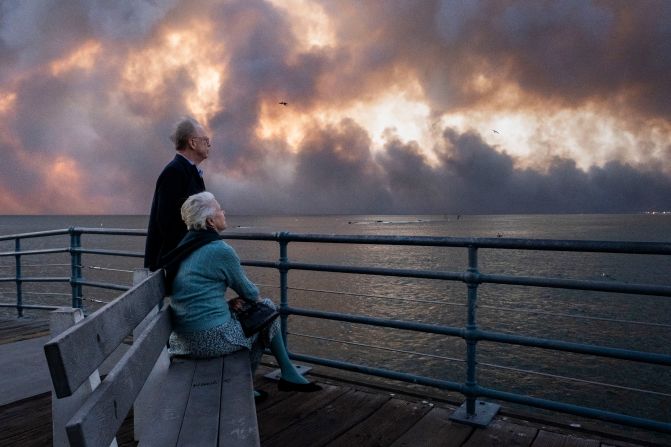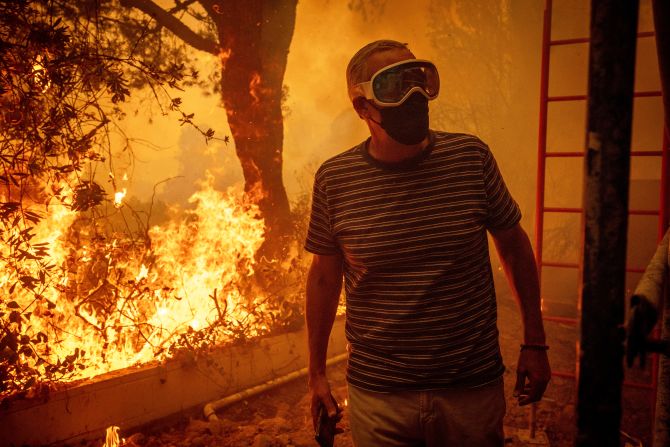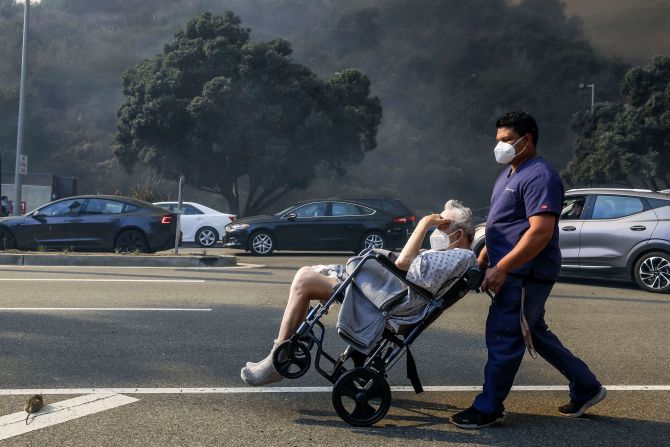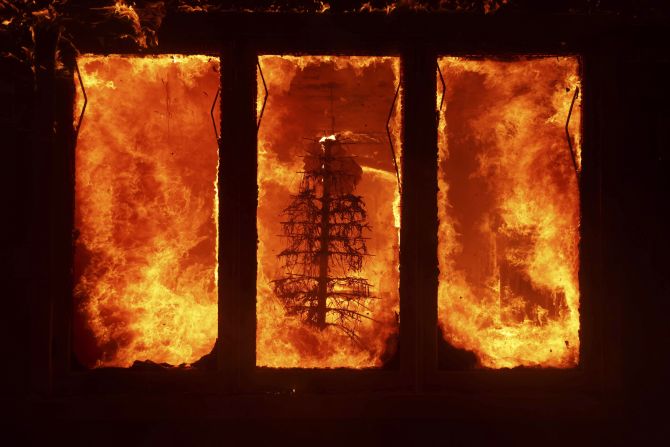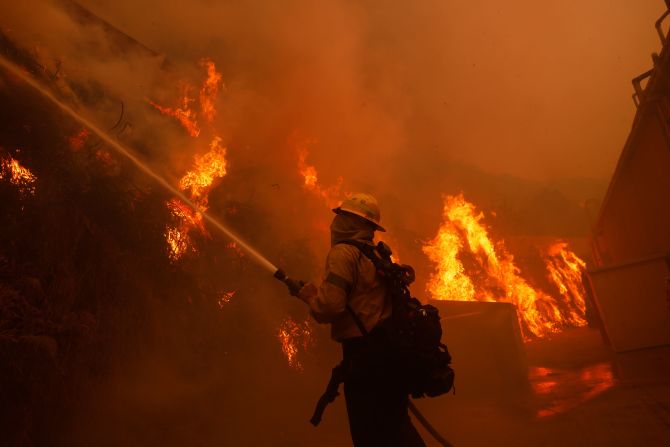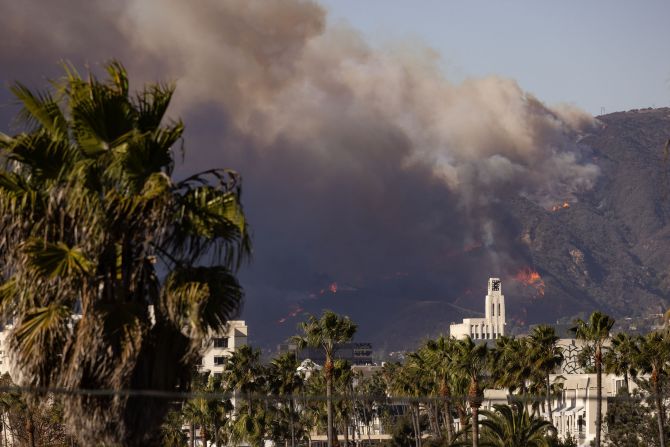1.14.25 – CNN – By Blake Ellis, Melanie Hicken, Kyung Lah and Anna-Maja Rappard,
The Los Angeles Fire Department has less than one firefighter per 1,000 residents, making it one of the most understaffed departments among major US cities. This ratio is considerably lower than that of cities like Chicago and Houston, which have closer to two firefighters per 1,000 residents. Despite its large population and fire-prone location, the city’s capabilities lag, prompting serious concern from fire officials and city leaders.
Less than a month before fires swept across Los Angeles, a group of longtime firefighters gathered at City Hall to plead for more resources. They were at a “breaking point,” one said. Another revealed that million-dollar fire trucks sat idle because budget cuts had shrunk the number of mechanics available to fix them.
“I’m going to say what people can’t say,” said Freddy Escobar, president of the city’s fire union and a veteran firefighter. “If we cut one position, if we close one station … the residents of Los Angeles are going to pay the ultimate sacrifice, and someone will die.”
The firefighters’ concerns over resources, it seems, weren’t off the mark. A CNN analysis of the most recent data available from the 10 largest US cities and other comparable departments shows the Los Angeles Fire Department is less staffed than almost any other major city, leaving it struggling to meet both daily emergencies and larger disasters such as wildfires.
Despite being located in one of the most fire-prone areas in the country, the LAFD has less than one firefighter for every 1,000 residents. That compares to cities such as Chicago, Dallas and Houston, where staffing is closer to two firefighters for the same number of residents. Of the largest cities, only San Diego has fewer firefighters per capita.
Up the coast from LA, the city of San Francisco boasts more than 1,800 firefighters for around 1.5 million residents of the city and nearby communities, while LA has roughly 3,500 firefighters allotted to serve a city of nearly 4 million.
Experts have said no fire department in the world would have been able to take on such a perfect storm of conditions that resulted in LA’s devastating blazes – which have burned more than 40,000 acres, destroyed more than 12,000 structures and caused at least 24 deaths.
LA’s firefighters were joined by crews from across the state, including from the Los Angeles County Fire Department, which covers areas outside the city, including hard-hit Altadena. But images of residents in some neighborhoods trying to save homes with garden hoses and no firefighters in sight have sparked a new debate over whether city officials should have planned better and invested more in the LAFD, and what should be done to become better positioned for the next emergency.
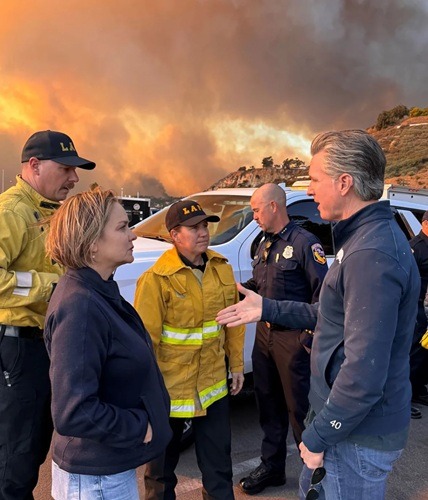
Los Angeles City Councilmember Traci Parks speaks with LA Fire Chief Kristin Crowley and California Gov. Gavin Newsom. Pete Brown
One of the speakers joining firefighters at the Fire Commission meeting last month was City Councilmember Traci Park. She warned resources were being strained “beyond the brink” despite a dangerously increasing risk of wildfire.
“Time and time again, elected leaders in Los Angeles have failed to make meaningful investments in our public safety and as a result, Angelenos are suffering the consequences,” Park said.
Just 21 days later, the Pacific Palisades community within Park’s council district ended up as the epicenter of one of the fires.
LA’s firefighters say the lack of resources is an everyday concern that extends beyond their ability to battle wildfires. They are also tasked with responding to structural fires, traffic accidents and medical emergencies, which have spiked amid a worsening homelessness crisis.
In a memo from the end of last year, Los Angeles Fire Chief Kristin Crowley also expressed concerns that the fire department’s staffing levels were half the size that a professional fire department should be, based on benchmarks recommended by the National Fire Protection Association.
In the memo, which the city has since removed from its website, Crowley wrote that the city’s population had grown from about 2.5 million in 1960 to nearly 4 million in 2020. Yet the city has fewer fire stations today than it did back then, even as firefighters respond to a call volume that has quadrupled.
Crowley wrote that based on an analysis, the agency would need 62 new fire stations and hundreds more firefighters to meet the nationwide average for fire departments in densely populated cities.
LA Mayor Karen Bass has faced criticism for recent budget cuts at the department, though she defended them at a press conference last week as a product of “tough budgetary times” and said the “impact of our budget really did not affect what we’ve been going through.” She also said additional funding was allocated later that ultimately represented an increase in the agency’s budget. Bass and the fire department did not immediately respond to a request for comment on CNN’s findings.
The fire union says that the neglect of the agency is a problem that long predates Bass.
“This isn’t about one budget cycle. It’s not about a single mayor. This has been the case for decades. We have been speaking about it for years now,” Escobar, the union president, said in an interview with CNN. “It’s sad it’s taken this natural disaster and tragedy to highlight what we have been saying for decades.”
In 2011, Los Angeles placed near dead last in a ranking of fire department staffing for the country’s 40 largest cities. The study, conducted by a New York City labor union, reviewed metrics including the number of firefighters, stations and engines.
1 of 84PrevNext
Last year, the Los Angeles Fire Department Foundation, a non-profit organization whose mission is to support the city’s fire department, issued a report, which included examples underscoring how much the department was struggling. Stations that were intended to house around six firefighters, for example, are now sleeping up to double that, according to the report. A single mini fridge was used to hold food for an entire station across all of their shifts, the report stated, and one washing machine has been used for more than 16 firefighters who need to clean their uniforms almost every day.
“City budget constraints and limited resources result in firefighters frequently shouldering the costs for urgent repairs or replacements of basic items, like washing machines, coffee machines and ice machines,” the report said, noting that nearly half of all stations have less than $1,000 of cash on hand in station accounts, which could quickly be drained by any number of necessary repairs.
Park, the councilwoman who sounded the alarm about a lack of resources last month, told CNN that she hopes “this is a wake-up call” and an opportunity to rethink how the city is prioritizing its competing needs. She has spent the past week surveying the destruction and speaking with firefighters who told her they had never seen anything like the situation that unfolded.
“Whether (more resources) would have made a difference for this particular fire or not, I don’t know. But on an average day here in Los Angeles, we don’t have what we need,” she said in an interview. “They have miraculously done more with less … but it’s not fair to them. … We owe it to them and to their families to make sure they’re safe and they have what they need.”
Do you have information or an experience to share about the LA fires? Email us at blake.ellis@cnn.com and melanie.hicken@cnn.com.
CNN’s Yahya Abou-Ghazala contributed to this report.
In pictures: Deadly wildfires in Los Angeles County
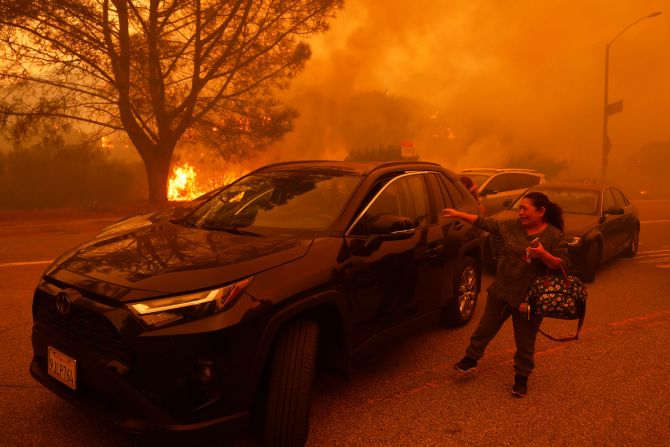
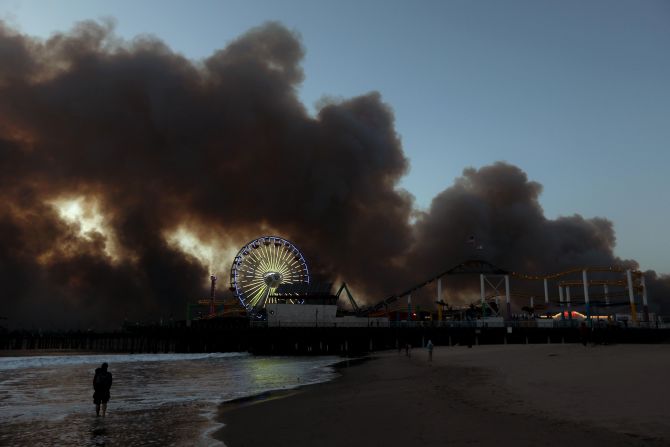
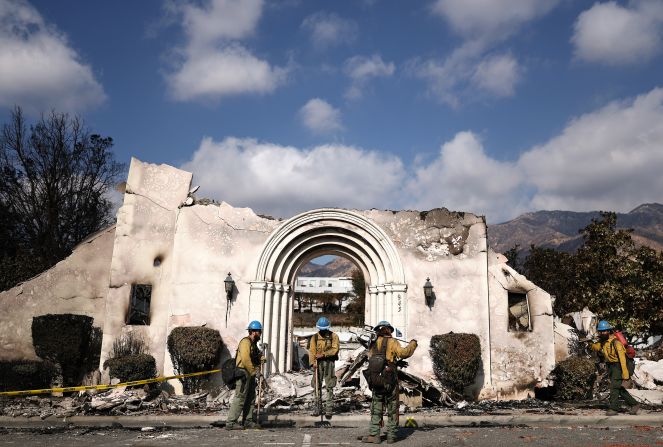
Private firefighters from Oregon gather in front of Altadena Community Church on Friday, January 17.Mario Tama/Getty Images
